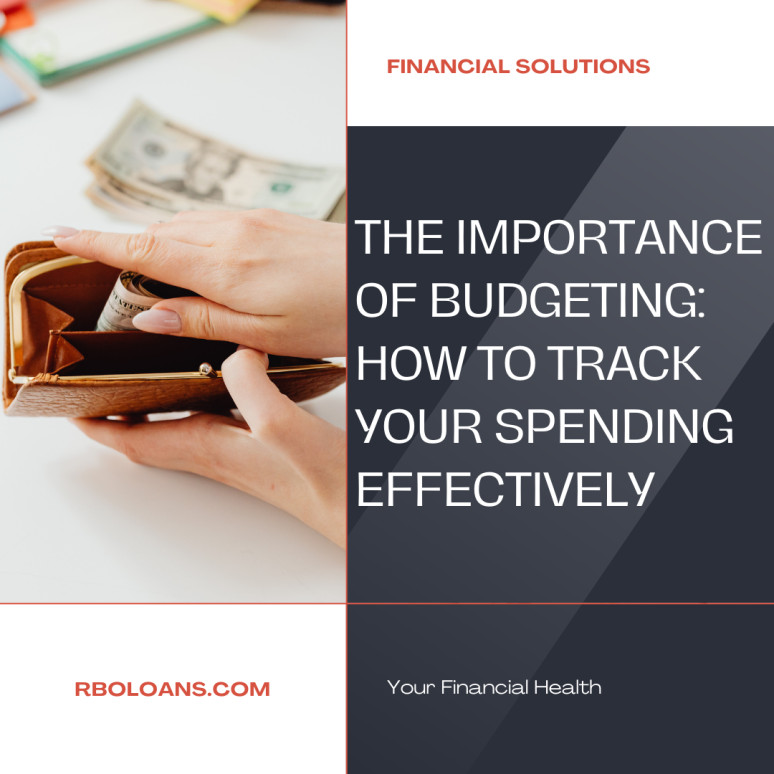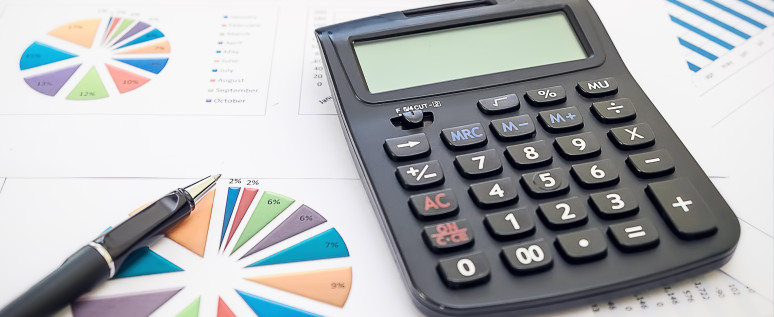The Importance of Budgeting: How to Track Your Spending Effectively

In our quick-moving world, it's more important than ever to handle your money well. Budgeting stands out as a vital skill, serving not only as a means to keep your spending in check but also as a roadmap to financial stability and freedom.
But what exactly is budgeting, and why is it so important? Simply put, budgeting is the process of creating a plan to spend your money. This spending plan, or budget, allows you to determine in advance whether you will have enough money to do the things you need to or would like to do. Tracking your spending is a core aspect of budgeting, providing transparency into where your money goes each month and highlighting opportunities to save.
Despite its significance, many people shy away from budgeting, viewing it as a restrictive or tedious process. However, when done correctly, budgeting can be liberating, offering a clear sense of financial direction and peace of mind. It empowers you to prioritize your spending, save for future goals, and ensure you always have enough for necessities. Without a budget, it's easy to find yourself in financial trouble, unaware of how quickly small purchases can add up.
The Benefits of Budgeting
Understanding the benefits of budgeting is the first step toward embracing it as a positive and empowering tool rather than a restrictive chore. Here are several key advantages that highlight the importance of establishing a budget.
Financial Control
Crafting a budget empowers you to take control of your financial path. By mapping out your income and expenses, you gain a clear understanding of your financial situation, enabling you to make informed decisions. This control is liberating, as it helps you navigate financial challenges and opportunities with confidence. Knowing exactly what you can afford, when you can afford it, and what you need to save for gives you a sense of security and peace of mind.
Goal Setting
One of the most motivating aspects of budgeting is its role in achieving personal and financial goals. Whether it's saving for a down payment on a house, planning a vacation, or setting aside money for retirement, a budget acts as a blueprint for realizing these objectives. By allocating funds towards specific goals each month, you can see progress over time, keeping you motivated and on track.
Avoiding Debt
Without a budget, it's easy to spend more than you earn, leading to debt. Budgeting helps prevent this by ensuring you live within your means. It encourages you to scrutinize unnecessary expenses and find ways to reduce costs, thereby minimizing the need to borrow. Additionally, for those already dealing with debt, budgeting is an effective tool for devising a strategic plan to pay it down.
Saving for Emergencies
Life can surprise us, and sudden costs can pop up out of nowhere. A well-planned budget includes allocations for emergency savings, providing a financial safety net for unforeseen circumstances such as medical emergencies, car repairs, or job loss. Having this cushion can make a significant difference in how you manage stress and financial pressure during tough times.
Common Budgeting Methods
To effectively implement a budget, it's helpful to understand the different methods available and choose one that best suits your lifestyle and financial goals. Here are three popular budgeting methods.
Envelope System
The envelope system is a straightforward, cash-based approach to budgeting. It involves dividing your cash into envelopes, each labeled for a different spending category (e.g., groceries, entertainment, utilities). Once the cash in an envelope is gone, you must wait until the next budgeting period to spend in that category again. This method is particularly effective for individuals who benefit from the tangible aspect of handling physical money.
Zero-Based Budget
A zero-based budget requires you to allocate every dollar of your income to specific expenses, savings, and debt repayment, ensuring there are no unassigned funds at the end of the month. This approach is thorough and requires meticulous planning but can be incredibly effective in managing finances tightly and achieving financial goals more quickly.
50/30/20 Rule
The 50/30/20 rule is a simple budgeting framework that divides your after-tax income into three categories: 50% for needs (essentials such as rent and groceries), 30% for wants (non-essentials like dining out and entertainment), and 20% for savings and debt repayment. This method offers flexibility and a balanced approach to managing money, making it a popular choice for those new to budgeting.
In the following sections, we'll dive into strategies for tracking your spending effectively and overcoming common budgeting challenges.

How to Track Your Spending Effectively
Keeping an eye on where your money goes is a key part of making a budget work. It not only helps you stay within your budget but also provides insights into your spending habits, enabling you to make necessary adjustments. Here’s how you can track your spending effectively.
Manual Tracking vs. Digital Tools
There are two primary methods for tracking spending: manually or using digital tools.
- Manual Tracking: This involves keeping receipts and logging your expenses in a notebook or spreadsheet. It can be time-consuming but offers a hands-on approach that some find helpful for staying mindful of their spending.
- Digital Tools: Many apps and software are designed to track spending automatically. These tools categorize expenses, generate reports, and offer a real-time overview of your finances. While convenient, it's essential to choose a tool that meets your privacy and security standards.
Choosing between manual tracking and digital tools often comes down to personal preference. Some find the tactile aspect of manual tracking helps reinforce good spending habits, while others appreciate the efficiency and insights provided by digital tools.
Setting Up a Tracking System
- Choose Your Method: Decide between manual tracking or a digital tool based on your lifestyle and preferences.
- Define Categories: Break down your spending into categories (e.g., housing, food, transportation). This lets you see what you're spending on and find ways to spend less.
- Record Transactions: Make it a habit to record every transaction, no matter how small. Consistency is key to accurate tracking.
- Set Aside Time for Review: Regularly review your tracked expenses, ideally weekly or monthly, to assess your spending patterns and adjust your budget as needed.
Categories of Spending
Categorizing your expenses can help you understand your spending habits better and identify areas where adjustments are necessary. Common categories include:
- Fixed Expenses: Costs that remain relatively constant, such as rent or mortgage, insurance premiums, and loan payments.
- Variable Expenses: Costs that fluctuate, like groceries, utility bills, and entertainment.
- Discretionary Spending: Non-essential expenses, such as dining out, hobbies, and travel.
Reviewing and Adjusting
The ultimate goal of tracking spending is to gain insights that allow you to make informed adjustments to your budget. Regularly review your expenses to:
- Identify Overspending: Pinpoint categories where you frequently overspend and explore ways to cut back.
- Adjust Budget Allocations: Redirect funds from underutilized categories to areas with a shortfall or towards your savings goals.
- Set New Goals: Use insights from your spending patterns to set new financial goals, such as increasing your emergency fund or saving for a large purchase.
Challenges in Budgeting and How to Overcome Them
Even with a solid plan, budgeting can present challenges. Let's look at some usual hurdles and ways to get past them.
Unexpected Expenses
Unexpected expenses are a reality of life, but they don't have to derail your budget. Planning for the unforeseen by setting aside a portion of your income into an emergency fund can provide a buffer that keeps your budget intact.
Sticking to the Budget
Discipline is essential for sticking to your budget, but flexibility is equally important. If you find certain budget categories are consistently off-target, reassess your allocations. It may be that your initial budget was too restrictive in some areas and needs adjustment.
Adapting to Financial Changes
Changes in income, whether increases or decreases, require adjustments to your budget. Regularly updating your budget to reflect your current financial situation ensures it remains an effective tool for managing your money.
Conclusion
The importance of budgeting cannot be overstated. It provides a foundation for managing your finances, setting and achieving goals, and ensuring financial stability. By effectively tracking your spending, you gain valuable insights into your financial habits, empowering you to make informed decisions and adjustments as needed.
Embrace the process of budgeting and spending tracking as a journey towards financial literacy and freedom. With dedication and the right strategies, you can take control of your finances and work towards a future of financial security and prosperity.

-small.jpg)
-small.jpg)
-small.jpg)
-small.jpg)
-small.jpg)